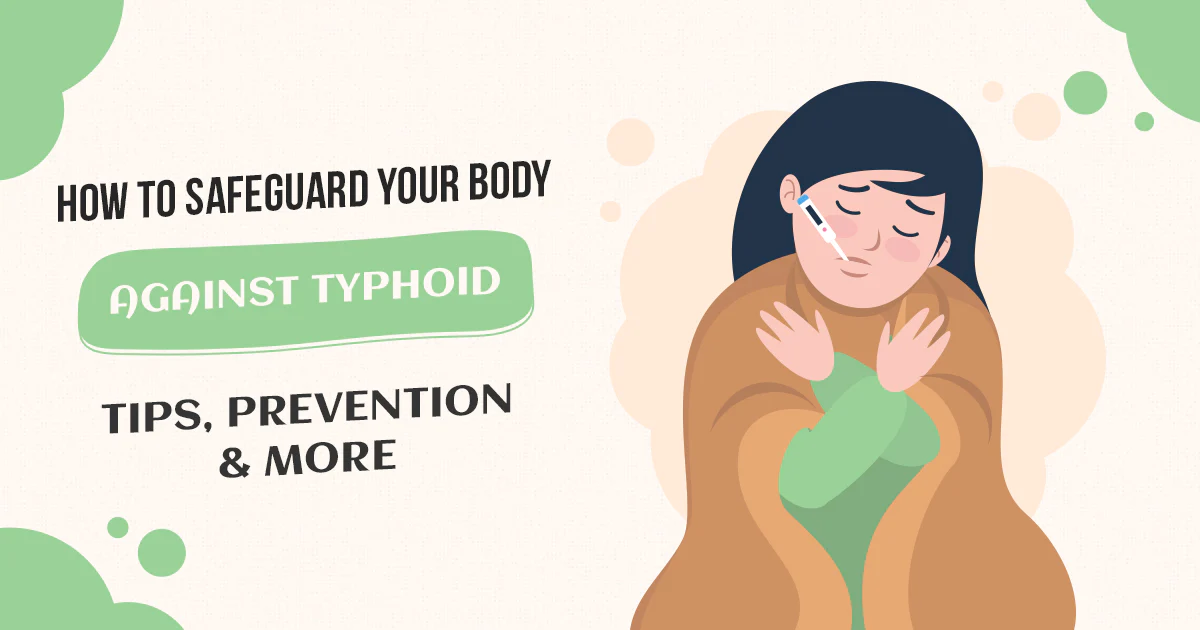Typhoid and Its Risks
Typhoid fever is a bacterial infection caused by Salmonella Typhi, which spreads through contaminated food and water. It can lead to serious complications if left untreated. In this article, we’ll explore actionable steps to prevent typhoid and safeguard your health.
1. Maintain Hygiene and Sanitation
Practice Good Hand Hygiene
- Wash your hands thoroughly with soap and water before eating, after using the restroom, and after handling food or waste.
- Use hand sanitizers containing at least 60% alcohol when soap and water are not available, especially when traveling or in public places.
Ensure Food Safety
- Consume only well-cooked and properly prepared food, avoiding raw or undercooked meat, eggs, and seafood.
- Avoid street food and unpasteurized dairy products, which may harbor harmful bacteria.
2. Drink Safe Water
Choose Safe Drinking Water Sources
- Drink only bottled water or water that has been boiled or treated with chlorine or iodine tablets.
- Avoid consuming tap water, ice cubes, and beverages made with tap water, especially in regions with poor sanitation.
Stay Hydrated
- Drink plenty of fluids, including clean water, herbal teas, and packaged juices, to stay hydrated and maintain optimal health.
3. Vaccination and Immunization
Get Vaccinated
- Consult with your healthcare provider about the typhoid vaccine, which is available in oral and injectable forms.
- Follow the recommended vaccination schedule, especially if you’re traveling to typhoid-endemic regions or areas with outbreaks.
4. Practice Safe Travel Habits
Take Precautions When Traveling
- Research and stay informed about the typhoid risk in the destination you’re traveling to, especially if it’s a high-risk area.
- Follow food and water safety guidelines, and avoid risky behaviors that may increase your chances of exposure to typhoid.
Prioritize Prevention
In conclusion, typhoid fever is a preventable disease, and by implementing simple yet effective preventive measures, you can significantly reduce your risk of infection. Remember to prioritize hygiene, food safety, safe drinking water, vaccination, and safe travel practices to protect yourself and your loved ones from typhoid.




